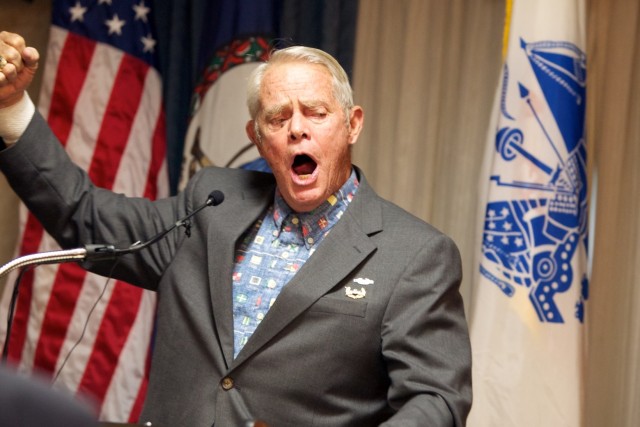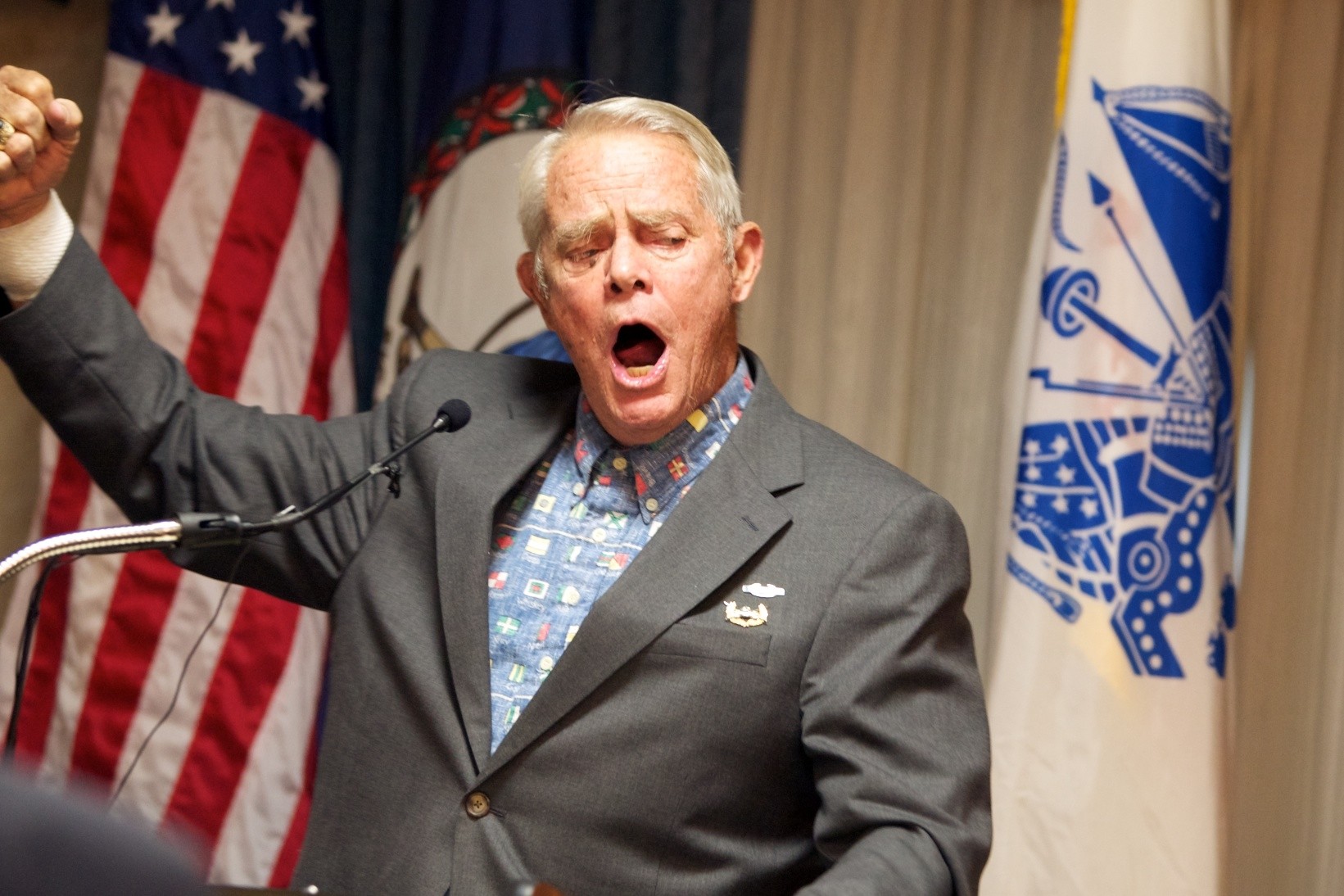LEXINGTON, Va. -- His name might not have been familiar to many of this year's George C. Marshall Award winners, but his impact is undeniable. After all, retired Maj. Gen. Robert Wagner paved their path to officership before most of them were born.
The first commander of U.S. Army Cadet Command and self-proclaimed "oldest Cadet" used a speech Tuesday morning at the Natural Bridge Hotel to motivate the graduating Cadets as they begin the "grand adventure" that is the Army.
"You are a guardian of freedom and the American way of life," said Wagner, who had an expert infantryman's badge pinned to his sport coat. "Each of you make the Army strong." Though he retired two decades ago, Wagner remains a mainstay of the Marshall seminar. He annually treks from his home in Norfolk to interact and offer advice to the Army's future leaders.
Late in his career, Wagner pushed for the development of Cadet Command and led the organization from its start in 1986. He designed the patch Cadets wear today on the left sleeves of their uniform, and his vision shaped much of curriculum taught to students on the senior and junior ROTC levels. Cadets relished the chance to see and hear from the man who started it all. Some said they found Wagner, now in his late 70s and still a vibrant personality, to be inspiring.
"It's priceless information," said Sam Hurchala of Western New England College, a partner school of the University of Massachusetts program. With all the generals who have addressed Cadets during the seminar, "it's interesting to see all that they have done. It's cool to follow in their footsteps." Hurchala and his fellow Cadets represent the Army's future and are pivotal to the nation's security, Wagner said.
He encouraged them to build off lessons they learned while in Cadet Command and hone their leadership skills once they commission. Doing so requires flexibility, proper training and forging relationships that enable units to meet and exceed their missions. Facing a world that is a "hugely dangerous place," Cadets must be able to function in joint environments to further America's interests. But it will be the Army -- and ultimately this generation of leaders -- that will shoulder much of the load in combat, Wagner said.
Looking out over the nearly 300 Marshall winners from his podium, Wagner expressed confidence in their potential to make a difference.
"You will successfully meet these challenges because of what you have learned in Cadet Command," he said. "I know you will defend the Constitution of the United States of America like it's never been defended before."


Social Sharing